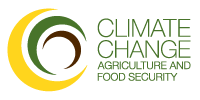The three reports released by the Climate Change Agriculture and Food Security Programme (CCAFS) of the Consultative Group on International Agricultural Research (CGIAR) highlight the importance of addressing the needs of small holder farmers in REDD+ and agricultural mitigation activities.
 8 June 2011: The Climate Change Agriculture and Food Security Programme (CCAFS) of the Consultative Group on International Agricultural Research (CGIAR) has released three policy briefs on agriculture, food production, mitigation and REDD+ (reducing emissions from deforestation and forest degradation in developing countries, as well as conservation, sustainable management of forests and enhancement of carbon stocks).
8 June 2011: The Climate Change Agriculture and Food Security Programme (CCAFS) of the Consultative Group on International Agricultural Research (CGIAR) has released three policy briefs on agriculture, food production, mitigation and REDD+ (reducing emissions from deforestation and forest degradation in developing countries, as well as conservation, sustainable management of forests and enhancement of carbon stocks).
The reports highlight the importance of addressing the needs of small holder farmers in REDD+ and agricultural mitigation activities. In “Linking forests and food in the REDD+ context,” the author evaluates the extent to which REDD+ countries are linking REDD and agriculture policies, programmes, and institutional and governance arrangements. The report examines Brazil as a case study, and suggests that: generally countries are failing to address agriculture drivers; and countries can address drivers by considering demand-side and market pressures, addressing tenure and land access rights, strengthening cross sectoral policies, linking adaptation to mitigation, boosting the production of agricultural systems, and incorporating agricultural carbon measurement in national MRV.
In “Next Steps for Climate Change Mitigation in Agriculture,” the authors stress the need to examine the most appropriate implementation mechanisms for climate change mitigation in agriculture, and calls for increased guidelines, sources of finance and pilot projects. The report notes that mitigation must have direct benefits for farmers and contribute to food security. It stresses the need for simple, cost-effective methods for measurement, reporting and verification (MRV). Finally, the report stresses that markets are not likely to provide adequate incentives for widespread mitigation practices.
In “Actions needed to halt deforestation and promote climate-smart agriculture,” the authors call for integrating actions for REDD+ and agriculture to achieve mitigation and food security outcomes. The report calls for “climate-smart” agriculture to address food security, adaptation and mitigation, and calls on REDD+ activities to address the needs of smallholder farms. The report stresses the underlying importance of governance for forest conservation, and the importance of aligning agriculture development policies with national climate change action plans. [Publication: Next Steps for Climate Change Mitigation in Agriculture] [Publication: Linking Forests and Food Production in REDD+ Context] [Publication: Actions Needed to Halt Deforestation and Promote Climate-smart Agriculture]